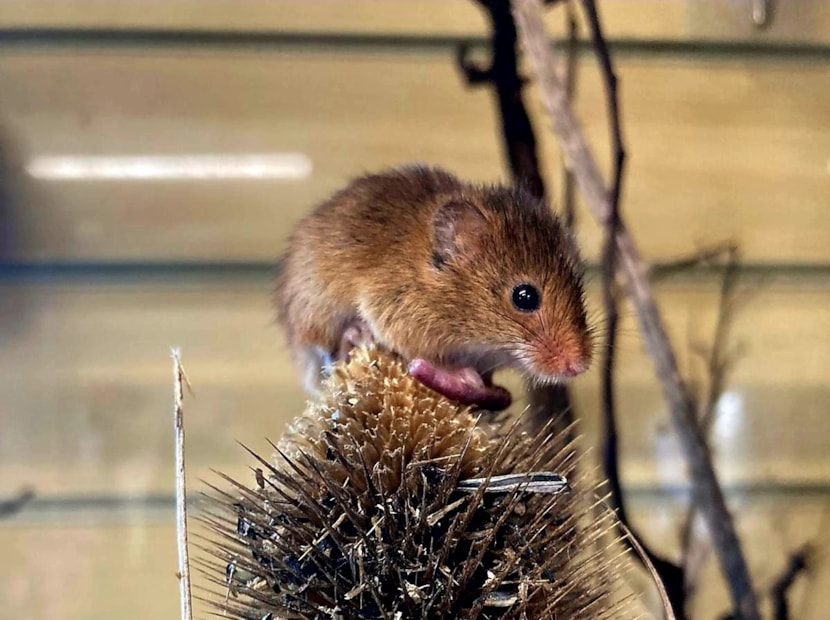
18 Jun 2025
Miniature mice return to Breary Marsh after 50 years
Harvest mice, Europe’s smallest rodent, have been found in Breary Marsh in Leeds after last having been recorded there in 1975.
The miniature mammal, which weighs less than a 50p coin, was once widespread across the UK but has seen rapid declines in many areas, including Leeds, over the last few decades. This is largely thought to be due to a change in farming practices resulting in a loss of their natural habitat.
The harvest mouse lives in long, tussocky grassland, reed beds, hedgerows and around woodland edges. Their spherical nests are made from tightly woven grass, elevated from the ground in tall grasses.
They can’t breed in thin vegetation which has been cut in the last two years, short grasses or those where the stems are too weak to support their nests.
Thanks to a change in the way staff at Breary Marsh care for the land, including going back to traditional scything instead of mowing and leaving areas of wildflower meadow, verges, woodland edge and wetland areas uncut, harvest mice have now moved back.
David L Preston, countryside ranger at Leeds City Council, said: “It is fantastic to see that harvest mice are back in Breary Marsh, a discovery I did alongside our brilliant volunteers from Friends of Breary Marsh. It shows that all the work we’ve been doing in changing our practices have worked wonders for the natural habitat.”
The team will now continue their work, alongside Yorkshire Mammal Group, in setting up a monitoring programme for Breary Marsh and the surrounding area to better understand the spread of populations.
Breary Marsh is a Local Nature Reserve and Site of Special Scientific Interest which borders onto Golden Acre Park and is a short walk away from Adel Nature Reserve.
Success has also been seen in other areas of Leeds in reversing the decline of harvest mice. In 2012, Rodley Nature Reserve reintroduced mice bred in captivity through a collaboration with Leeds City Council’s parks and green spaces service. More releases have taken place since and numerous nests were found during recent surveys in 2022.
It is the only British mammal with a prehensile tail, meaning it works as a fifth limb able to grasp and hold things.
Councillor Mohammed Rafique, Leeds City Council’s executive member for climate, energy, environment and green space, said: “To hear that we are seeing an increase in harvest mice in Leeds is wonderful, proving that our teams are working hard to look after our natural habitats and green spaces.
“In the last few years, we have restored two areas of Roundhay Park to wildflower meadows to increase the habitat for native butterfly species within the park, and we are also working on our ambition to plant 5.8million trees which we started in 2020.”
ENDS
For media enquiries contact:
Leeds City Council Communications team
communicationsteam@leeds.gov.uk